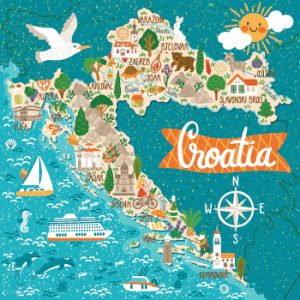If you need to use your time wisely, prioritize in-context input over vocabulary lists or grammar drills. In-context learning is simply more effective.
 In-context learning materials presuppose stories you can relate to and make sense of. Often, you’ll learn new words and expressions without having to look them up on the lexicon – you learn them from the context instead.
In-context learning materials presuppose stories you can relate to and make sense of. Often, you’ll learn new words and expressions without having to look them up on the lexicon – you learn them from the context instead.
It also helps you keep motivated and in touch with the language on a daily basis, provided that the materials are compelling to read or listen to. And here’s the thing, such a gratifying experience is likely to increase your word-retention rate in the long run.
But there’s more!
In-context input designed for language learners (and when properly done) is normally propped with colloquial expressions used in everyday life. That helps you develop a sound idiomatic feel for the language and, as a result, you’ll sound more natural when speaking.
Think this way, what would make you learn Croatian the best? Being exposed to the language as spoken by native speakers, or going through tedious word lists truncated from their context?
Did it ever happen to you, having learned 300+ words in a new language and still not being able to string them together into a sentence in a real-life conversation?
You’re definitely not alone (me included), and that’s because many language learners spend their time memorizing amorphous words and fixed phrases instead of spending time with the “living beast” itself!
So, consider using more in-context learning materials to learn the language. Its benefits will show rather quickly.
 The mission of Compass Croatia and this website is to provide cultural navigation with our Croatian language, the best destinations and optimum experiences for your next visit.
The mission of Compass Croatia and this website is to provide cultural navigation with our Croatian language, the best destinations and optimum experiences for your next visit.
 See, there is a myriad of Croatian language learning resources out there, many of them online and for free – from flashcards and language exchange apps to podcasts and YouTube channels * catering to language learners.
See, there is a myriad of Croatian language learning resources out there, many of them online and for free – from flashcards and language exchange apps to podcasts and YouTube channels * catering to language learners. There is no better way to enable daily practice than to build it into your daily routines. And here’s the thing: you don’t actually need to time-block your day to stay in touch with Croatians! Just take it with you as you go through your daily routines.
There is no better way to enable daily practice than to build it into your daily routines. And here’s the thing: you don’t actually need to time-block your day to stay in touch with Croatians! Just take it with you as you go through your daily routines. In-context learning materials presuppose stories you can relate to and make sense of. Often, you’ll learn new words and expressions without having to look them up on the lexicon – you learn them from the context instead.
In-context learning materials presuppose stories you can relate to and make sense of. Often, you’ll learn new words and expressions without having to look them up on the lexicon – you learn them from the context instead. One common belief among language learners is that it will be a good while until you are able to start speaking in Croatian. Wrong.
One common belief among language learners is that it will be a good while until you are able to start speaking in Croatian. Wrong.